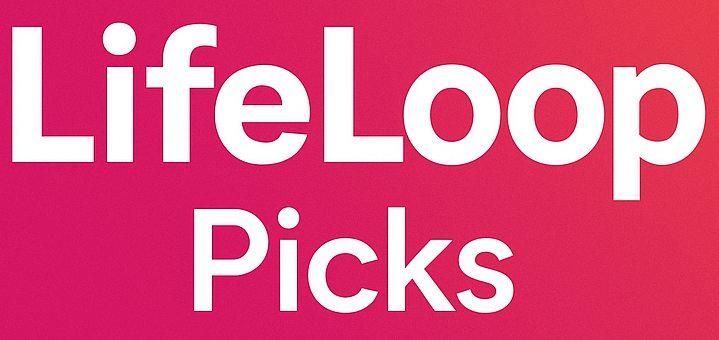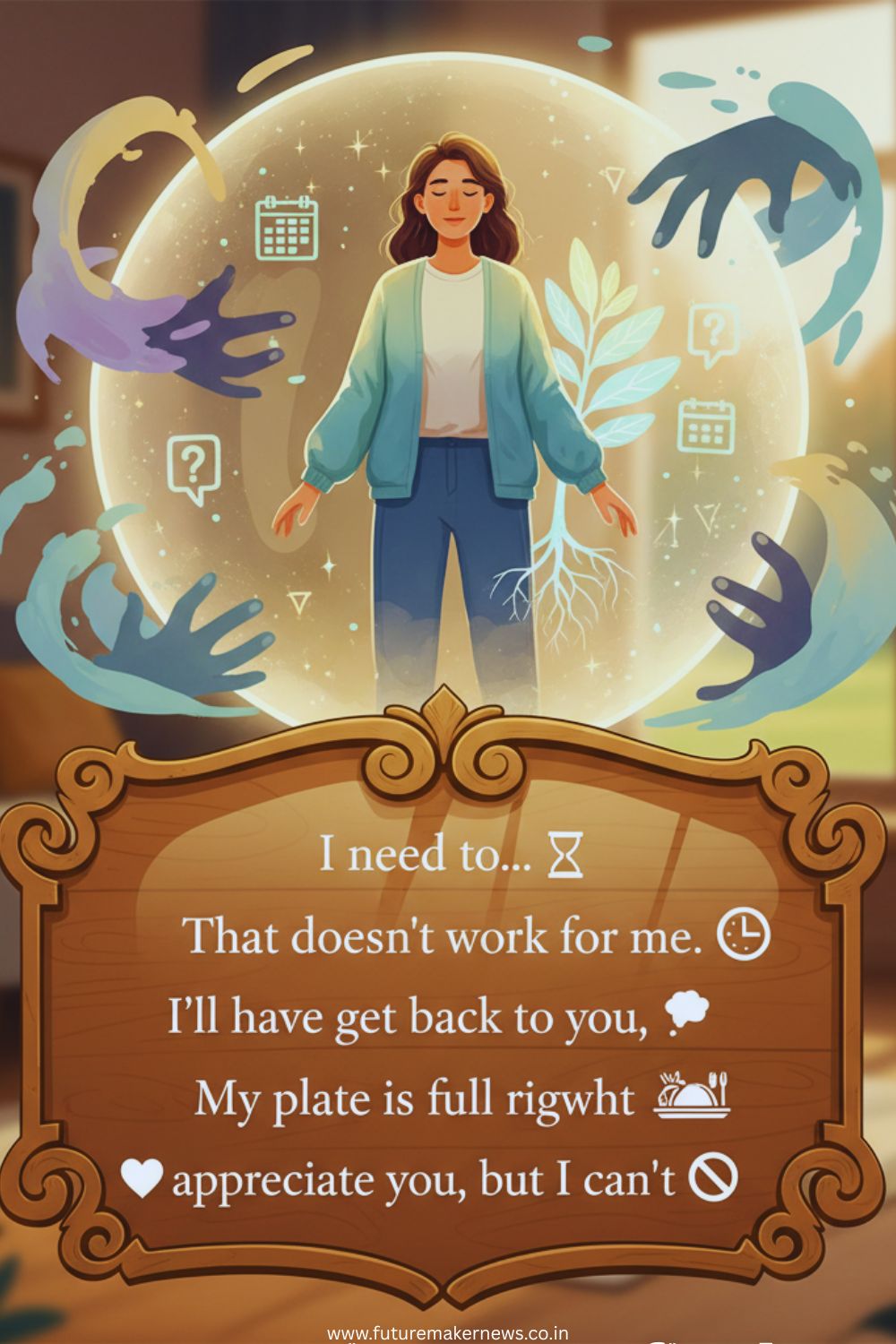Do you ever say “yes” when you really want to say “no”?
Do you feel exhausted from trying to please everyone around you — at work, at home, or in friendships?
If so, you’re not alone.
Many people struggle with setting healthy boundaries because they fear being seen as selfish, rude, or unkind. But here’s the truth — boundaries are not walls; they’re doors. They don’t push people away; they teach others how to treat you with respect.
And the best part? You can set firm, healthy boundaries without feeling guilty — simply by learning the right words to say.
In this post, we’ll explore why boundaries matter, how to set them confidently, and 5 empowering phrases you can start using today to protect your peace and self-worth.
Let’s dive in.
Why Setting Boundaries Is So Important
Boundaries are like emotional fences — they define where your responsibilities end and someone else’s begin. They help you stay balanced, respected, and mentally healthy.
Here’s why setting boundaries is essential for your well-being:
- They protect your energy: Without boundaries, you end up drained and resentful.
- They improve relationships: People respect you more when they know your limits.
- They reduce stress: Boundaries remove confusion about what’s acceptable and what’s not.
- They build confidence: Saying no when necessary strengthens your sense of self.
When you learn to set boundaries with kindness and clarity, you create relationships based on mutual respect, not obligation.
Why You Feel Guilty for Setting Boundaries
Let’s be honest — guilt is the number one reason people avoid setting boundaries.
You might think:
- “What if they get upset?”
- “I don’t want to disappoint anyone.”
- “It’s easier to just say yes.”
That guilt often comes from people-pleasing habits you developed to keep peace or gain approval. But the truth is, saying yes when your heart says no only builds silent resentment — and resentment poisons relationships.
Remember this powerful truth:
Saying no to others is often saying yes to yourself.
Healthy boundaries aren’t about control or selfishness — they’re about self-respect and emotional safety.
How to Set Boundaries Without Feeling Guilty
Setting boundaries doesn’t mean being harsh or cold. It means being clear, kind, and consistent. Here’s how to do it with grace:
- Know your limits.
Ask yourself what drains your energy or makes you uncomfortable. That’s where boundaries are needed. - Communicate early and honestly.
Don’t wait until you’re frustrated. Use calm, direct language to express your needs. - Use “I” statements.
Focus on how you feel rather than blaming others. (For example: “I need time to recharge” instead of “You always expect too much.”) - Stay consistent.
People might test your boundaries. Stay firm and don’t over-explain. - Replace guilt with gratitude.
Instead of feeling bad for saying no, thank yourself for taking care of your mental health.
Now, let’s get to the most practical part — the five empowering phrases you can start using today.
5 Phrases to Start Using Today (and How to Use Them)
1. “I’d love to help, but I can’t take that on right now.”
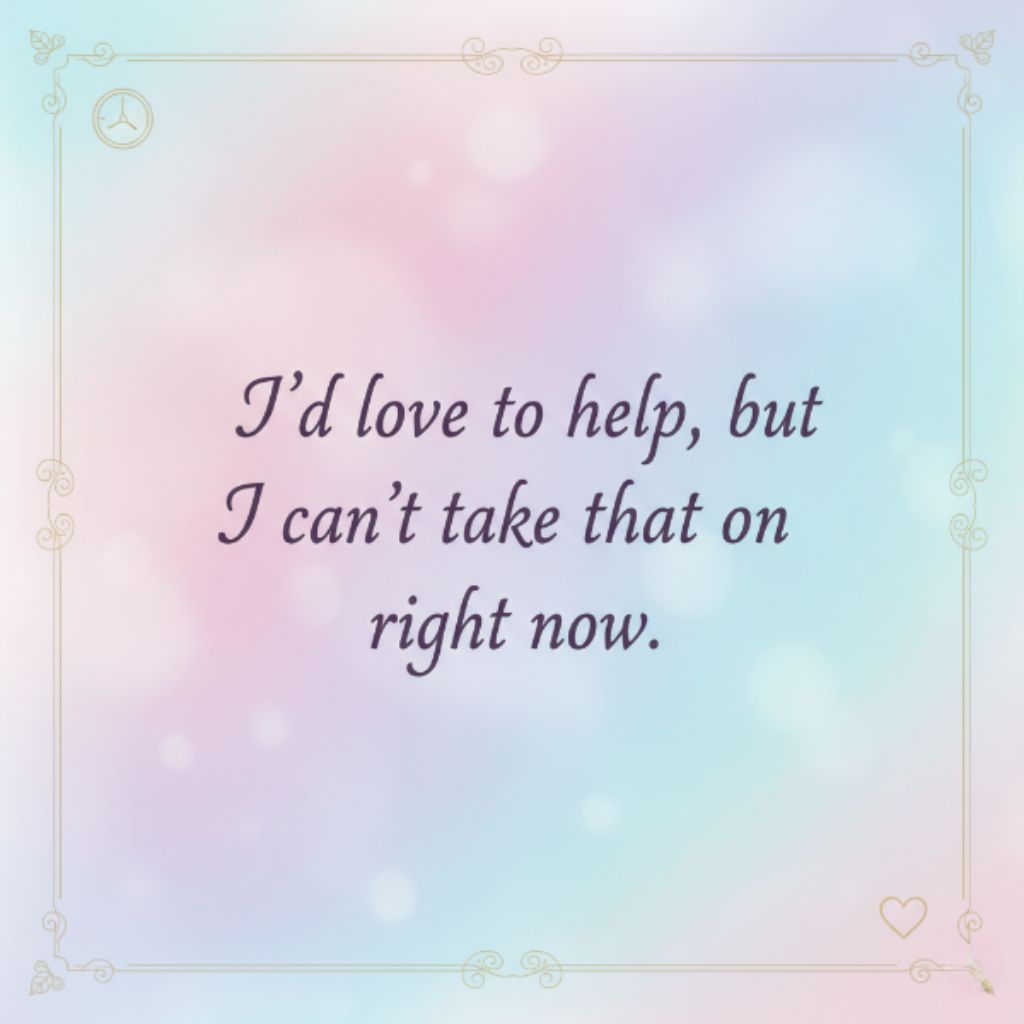
This is a gentle and polite way to decline without overexplaining. It shows empathy, but also honors your limits.
Why it works:
- It keeps your tone warm and respectful.
- It signals that your time and energy are valuable.
- It prevents you from saying yes out of guilt.
Try this when:
- A coworker asks you to stay late again.
- A friend asks for a favor when you’re already overwhelmed.
2. “That doesn’t work for me right now.”

This phrase is simple, neutral, and assertive. It doesn’t invite debate or justification.
Why it works:
- It sets a boundary without sounding defensive.
- It keeps the focus on your needs, not excuses.
- It’s a go-to phrase for both personal and professional settings.
Try this when:
- You’re invited to an event you don’t want to attend.
- Someone pushes you to do something you’re uncomfortable with.
3. “I need some time to think about that.”
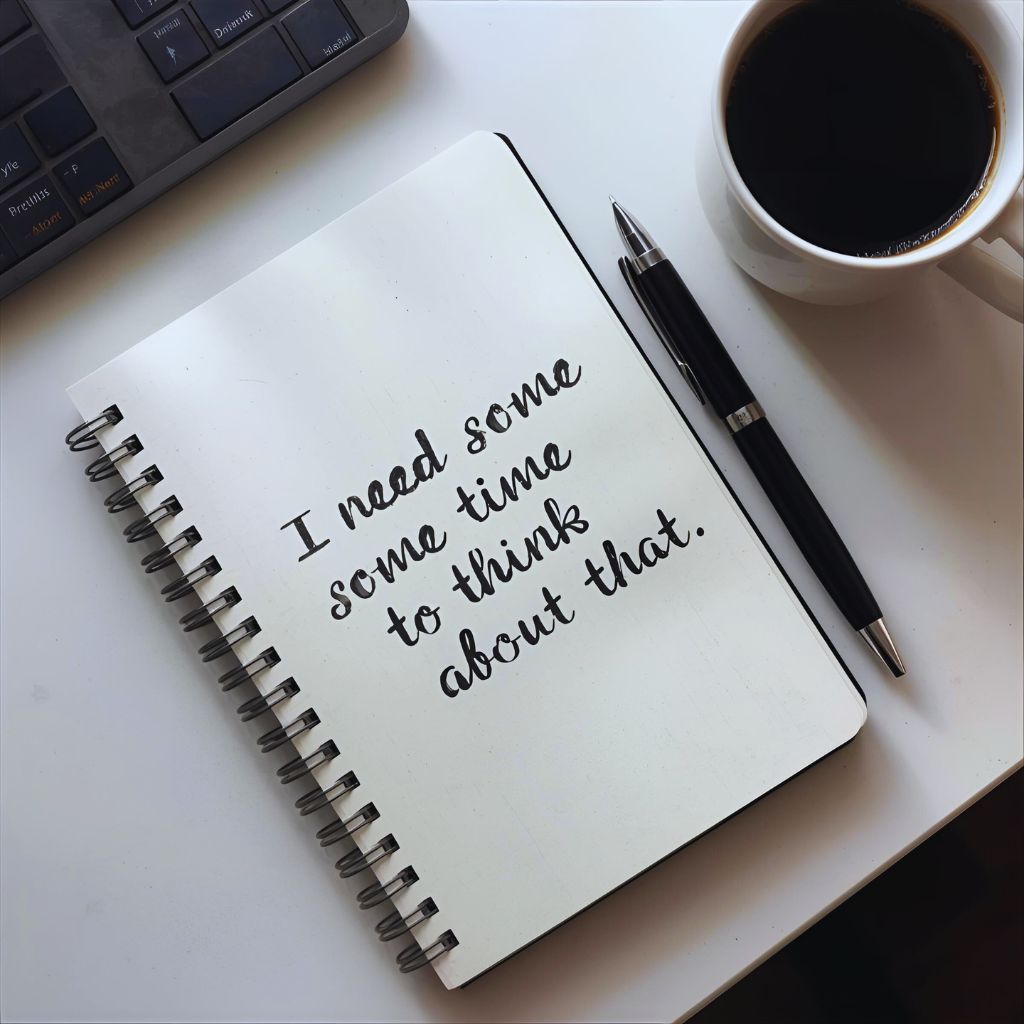
This is perfect for those moments when you feel pressured to say yes immediately. It creates space for decision-making.
Why it works:
- It buys you time to evaluate whether you truly want to commit.
- It helps you avoid impulsive “yes” responses.
- It teaches others that your time is valuable.
Try this when:
- A boss, friend, or family member asks for a favor on the spot.
- You’re unsure if you can meet someone’s request.
4. “I understand how you feel, but I need to prioritize my own well-being.”
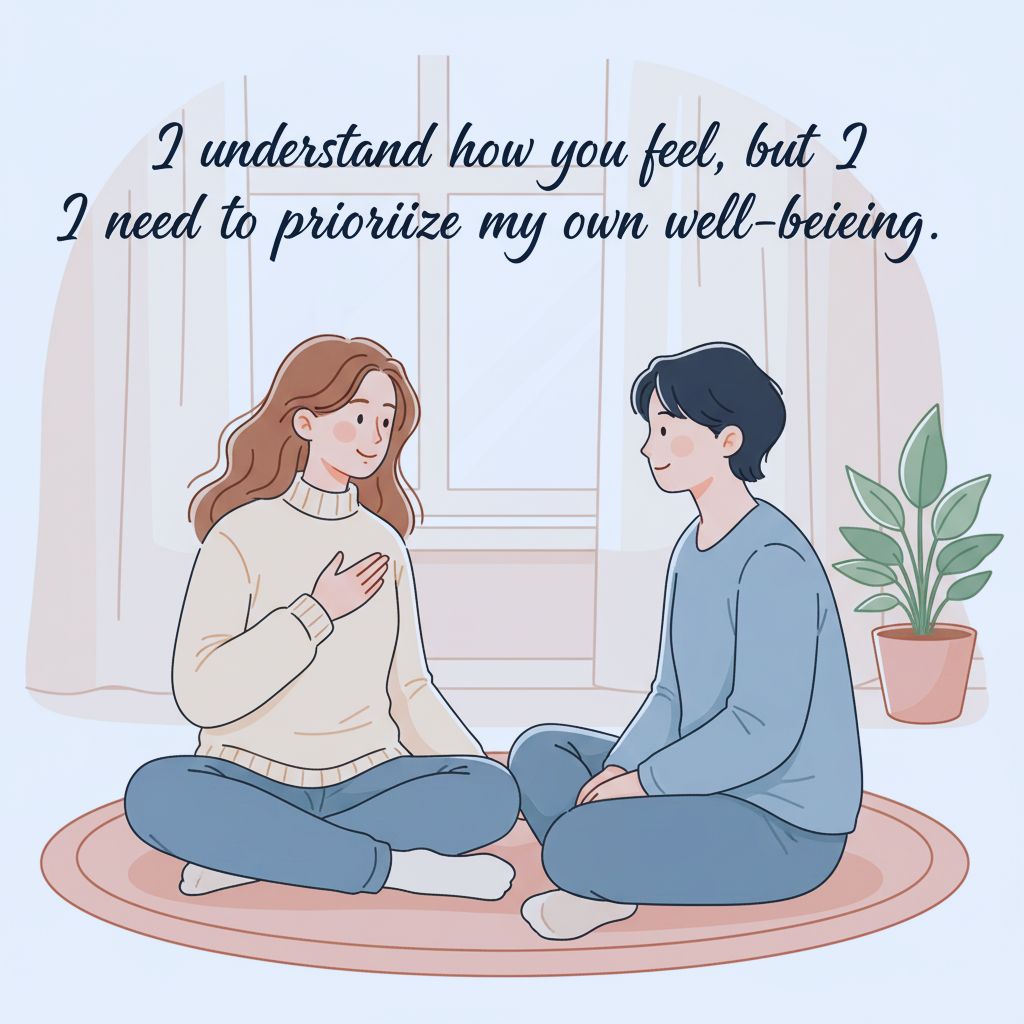
This phrase blends empathy with firmness. It acknowledges others’ feelings without sacrificing your own.
Why it works:
- It shows compassion while asserting boundaries.
- It teaches emotional maturity and self-respect.
- It’s ideal for sensitive or emotional conversations.
Try this when:
- Someone guilt-trips you for saying no.
- You need to protect your mental health from toxic demands.
5. “No, thank you.” (Period.)
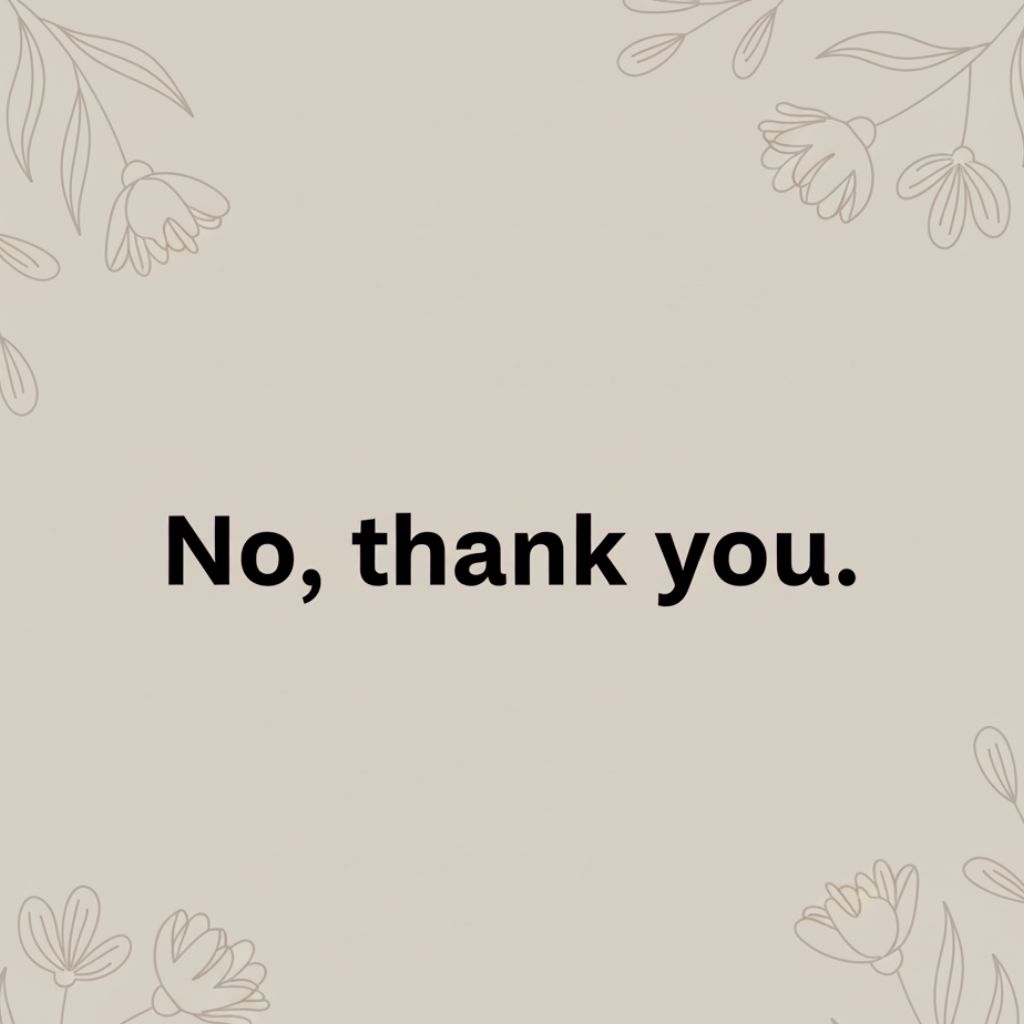
Sometimes, the most powerful boundary is the simplest one. You don’t owe anyone an explanation for protecting your peace.
Why it works:
- It’s short, polite, and final.
- It reinforces that you don’t have to justify your decisions.
- It empowers you to take control of your choices.
Try this when:
- Someone repeatedly pushes your limits.
- You’re asked to do something that doesn’t align with your values.
The Emotional Shift: From Guilt to Self-Respect
Once you start using these phrases, you may feel a little uncomfortable at first — and that’s normal. Growth often feels awkward before it feels empowering.
But here’s what happens over time:
- People begin respecting your boundaries.
- You gain more energy and emotional clarity.
- You stop over-explaining or apologizing for your needs.
- You feel free, calm, and confident instead of guilty or anxious.
Each “no” you say with self-respect creates space for more meaningful yeses — yes to rest, joy, creativity, and peace.
Tips to Strengthen Your Boundaries Over Time
- Practice in low-stakes situations.
Try setting small boundaries first (like declining a minor request). Build up your confidence gradually. - Don’t apologize for saying no.
You don’t need to say, “I’m sorry, but…” Replace apology with appreciation (“Thanks for understanding”). - Surround yourself with boundary-respecting people.
Healthy people respect healthy boundaries — and set their own, too. - Remember your “why.”
Boundaries aren’t selfish — they’re self-care in action. They protect your time, energy, and emotional peace.
Final Thoughts: You Deserve Peace Without Guilt
Setting boundaries doesn’t make you difficult — it makes you authentic. It’s how you teach the world how to treat you.
The more you practice using these boundary-setting phrases, the easier it becomes to protect your energy without overthinking or feeling guilty.
So next time someone asks for more than you can give, take a deep breath and remind yourself:
“My peace matters. My needs matter. My boundaries matter.”
Because when you respect your limits, you create a life filled with balance, confidence, and genuine connection — the kind of life you truly deserve.
